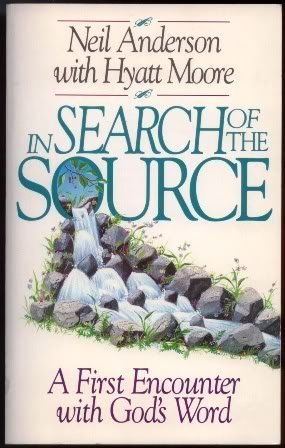What do you think?
Rate this book


In the eerie light of flickering torches, the wild hunting party was bringing down giant fruit bats with blow darts and killing them with their bare hands. The cave was full of yelling, splashing men,, screaming bats, and deadly darts.
That's when Anderson calmly suggested wading across the underground lake...and the party of former cannibals fell deathly silent.
Through the compelling story of Bible translators Neil and Carol Anderson, We relearn something we may have forgotten...the raw power of God's Word to wrench human lives from darkness and flood the heart with light, understanding, and peace.
205 pages, Paperback
First published January 1, 1992